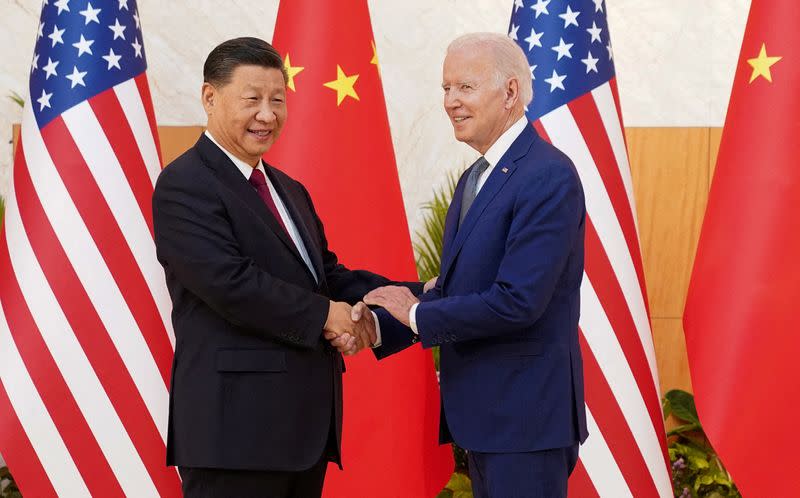As ties continue to sour between Beijing and Washington, US businesses with operations in China are caught in a dilemma.
While some are weighing the possible risks of keeping their operations within the factory floor of the world, others are dealing with the logistical challenges stemming from a shift of base to avoid those risks.
“If we didn’t already have a plant in China, we sure wouldn’t start one now,” said Jason Andringa, whose company Vermeer opened a Chinese plant two decades ago.
Also on AF: US Chip Export Ban Seen as Big Opportunity for Huawei
Vermeer was part of the stampede of US businesses that built factories in China. As the company’s president and CEO, Andringa frequently visited what many considered the world’s premier fast-growing, future-oriented economy.
But the mood of Vermeer, a 4,000-employee maker of industrial and farm machinery, and many other global producers has turned sour on China as tensions continue to rise between the world’s two biggest economies.
Relentless China dependence
Surveys now show US business leaders are eager to cut back their China exposure and are shifting investment to other, friendlier shores.
This is a radical shift from the days when offshoring production to China was rewarded by Wall Street and investor calls often highlighted multi-million-dollar expansions in the world’s second-largest economy.
“We have businesses doing full exits from China,” said Matt Dollard, a senior analyst at RSM US, a consulting firm that focuses on mid-market companies.
Dollard is working with a group of auto suppliers who plan to be entirely out of China within three years, he said.
But companies that are pushing to build new factories or find existing suppliers in other countries face a common problem – they often end up still relying heavily on Chinese factories for parts and raw materials.
Jim Estill, CEO of Canadian firm Danby Appliances, said his company got 85% of its goods from Chinese factories five years ago. Danby sells over half of its products in the US.
Estill has been steadily moving to suppliers in places like Turkey, and within Canada, with hopes to have his Chinese supply base down to 50% in the next year.
“My concerns are primarily political,” he said. “We could wake up tomorrow and find out China invades Taiwan.” That would shatter his business.
View this post on Instagram
‘China plus one’
The mood swing against China is visible in the numbers. An annual survey by the US-China Business Council, conducted in June and July, showed more than a third of respondents have cut or paused their investments in China over the past year.
That was a record high, and far above the 22% who said that in last year’s survey. Most of the respondents to the survey are large US-based multinationals.
The group said geopolitics is the “single largest issue weighing down business sentiment over the long term.” However only a few of the firms indicated they plan to fully exit China.
Faced with these pressures, many companies are pursuing a so-called China-plus-one strategy. Rather than expand in China, these companies are directing new investments to other low-cost countries such as Vietnam and India.
Not all looking for an exit
The move away from China began on a small scale during the Trump administration’s trade war, as producers shifted supply chains to sidestep the cost of tariffs.
And the exodus has intensified under the Biden administration, morphing from a trade battle into a geopolitical struggle. US businesses also remain concerned over Beijing’s fines and raids on foreign firms, making the country “uninvestible”.
Souring trade ties would likely be a key topic if US President Joe Biden and Chinese President Xi Jinping meet next month during the Asia Pacific Economic Cooperation (APEC) forum in San Francisco. The White House is working to arrange a meeting, though the plans remain unsettled.
Even so, some companies are doubling down on China. Ryan Gunnigle, CEO of Atlanta-based toy maker Kids2, said he is continuing to invest in his China factories, adding both automation and new capacity.
In an email, Gunnigle said he is doing a few projects in Vietnam, “but nothing of significance” because China continues to have the combination of a strong infrastructure, high quality producers, and low costs necessary in the toy business.
As for Veneer, Andringa said he has no plan to leave and is pleased with his China operations. But he does not intend to expand there given US-China tensions that seem more likely than not to escalate.
He worries it could be increasingly difficult to find employees and receive fair treatment in a country that is mutually antagonistic with the US.
- Reuters, with additional editing by Vishakha Saxena
Also read:
US Expands Ban on Top AI Chips, Curbs to Hit Many Countries
Raimondo Warns China Patience Of US Business ‘Wearing Thin’
US Business Outlook in China Sinks, Firms Looking at SE Asia
US Checking EV Battery Imports Over China Forced Labour Fears
China Seen Blocking US Chip Giant’s $5.4bn Merger With Tower
China Stalling Merger Reviews of US Chip Firms, Others – WSJ
























